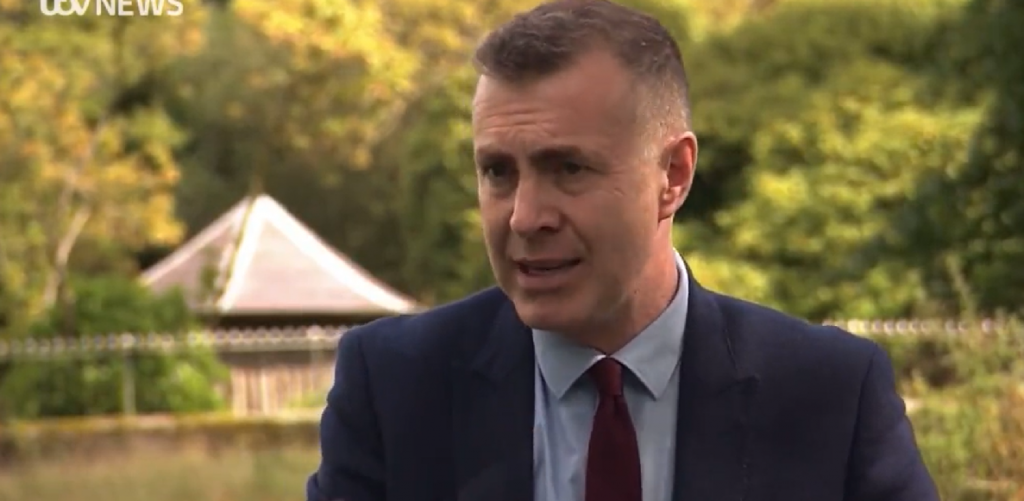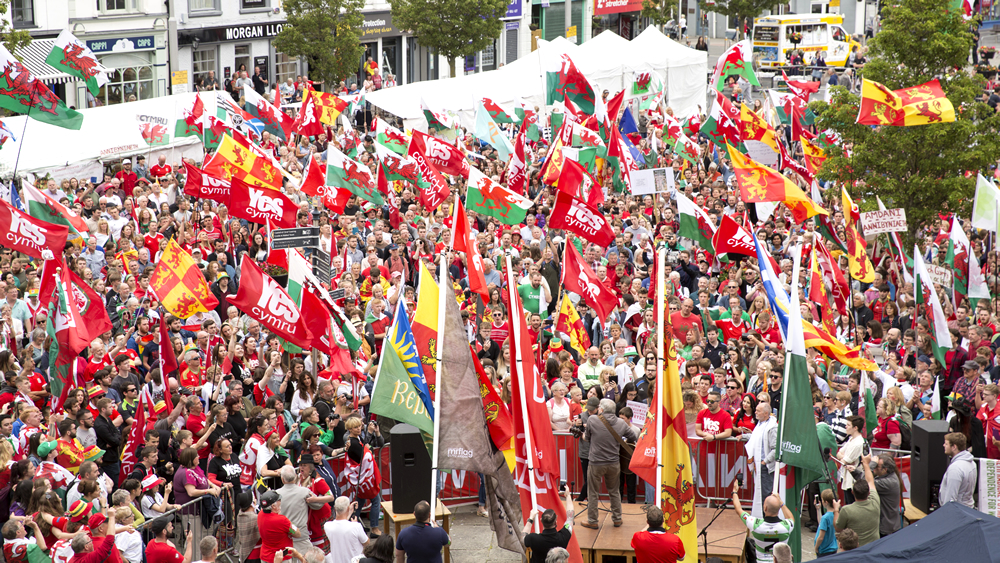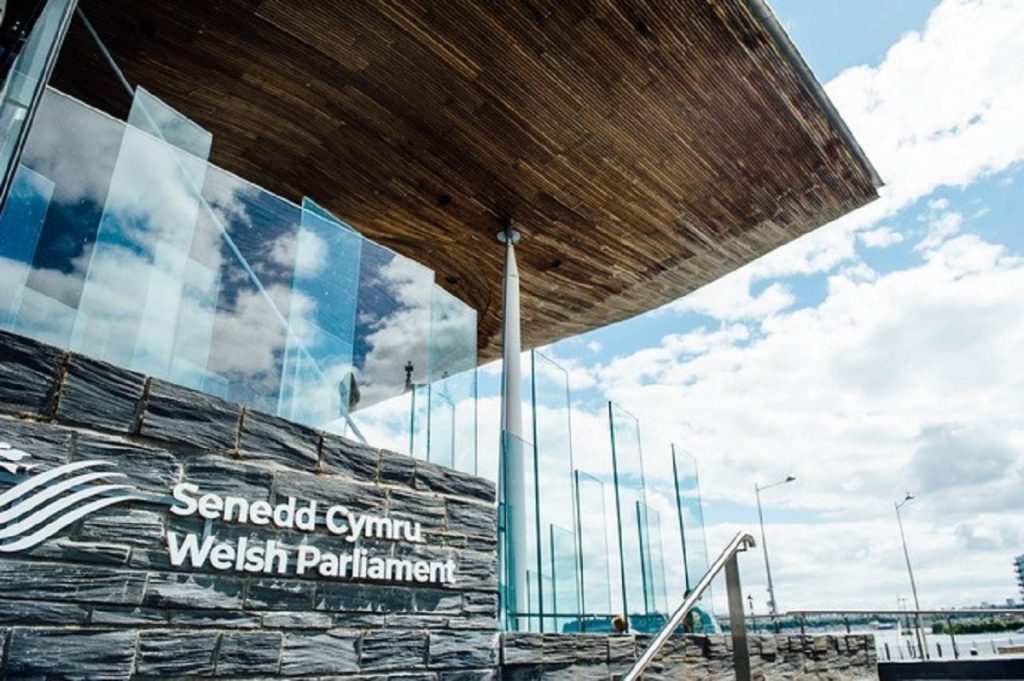These should be heady days for Plaid Cymru, writes Jonathan Edwards MP. The men’s national team will soon compete in a football World Cup boosting national confidence to record levels. Dafydd Iwan’s anthem, ‘Yma o Hyd,’ is the most popular song in Wales. An estimated 10,000 people recently descended on the capital to march for independence.
The party could not hope for a better tailwind but is in complete stasis.
I followed the recent Annual Conference with great interest. My overriding feeling was how completely irrelevant the party has become unless you live in its political orbit. Sure, there was a plethora of announcements by the party’s Leadership. To be perfectly honest, two weeks after the event, I don’t have a clue what they were.
“CRACKPOT CLIQUE” DAMAGES PLAID

The problem with serial flip-floppers in Leadership positions is that after a while, all policy consistency is lost, resulting in a loss of focus and ethos. It’s all about gestures and poses struck to placate the in-crowd and not what matters to most Welsh voters.
The previous Leader’s faction is of greater worry for Plaid Cymru’s long-term prospects. This crackpot clique of the membership operates as if it is a party within the party. It’s captured the party’s decision-making processes. As well as being politically militant, they are viciously vindictive, as I found out to my own cost.
I have little sympathy for the current Leader, but he is surrounded. A puppet on a string has more independence of movement.
Plaid Cymru faces an existential crisis. I suspect much of the commentary over the next months will concentrate on the party’s electoral prospects in the next big test – the General Election. I don’t wish to dwell on it too much. However, suffice it to say that the new parliamentary boundaries aren’t particularly kind. The grand scheming of the weekend warriors on the party’s National Executive Committee is about to face an electoral reality check.
One seat completely disappears. One seat is safe. They will be hoping that Rhun ap Iorwerth’s personal vote will get them over the line in Ynys Mon. Without Ben Lake, I don’t think Plaid would hold the extended Ceredigion seat. The new Carmarthen seat will be interesting.
Apart from those constituencies, Plaid Cymru is irrelevant regarding a Westminster election, a damning indictment of the party’s failure to become a truly national party.
YES CYMRU AND A WAY FORWARD

What interests me, however, is the strategic cul-de-sac the party faces. Yes Cymru has successfully turned Welsh independence from a fringe political issue into a mainstream issue. Much of the energy and vibrancy in Welsh politics is generated by Yes Cymru and not our political parties.
Only in my wildest dreams did I think we would see polls indicating over 40% supporting independence with thousands marching on the streets.
Welsh politics resembles a First World War battleground. Labour, Plaid, and the Tories have entrenched electoral blocks of supporters of differing sizes. The most ferocious intellectual dynamic in the contest is those group of independence supporters who split between Plaid and Labour.
However, the success of Yes Cymru has created significant challenges for Plaid Cymru. Its response has been to take a more absolute position on the national question in an attempt to polarise the constitutional question (as the SNP have done). The strategy has failed to date as the Labour party in Wales has managed to maintain the support of its independence supporters. You Gov found that 40% of Labour voters support independence.
Voter behaviour is complicated. Plaid Cymru’s main hope of advancement is persuading those independence-supporting Labour voters to change sides. Labour, to date, has been able to keep its electoral coalition on the constitutional question together by advancing a radical devolution policy. Vague promises of Home Rule within the Union have proven sufficient to placate the ambitions of its nationalistic members whilst not leading to a backlash from those who maintain a loyalty to the British State.
Yes Cymru is here to stay. As it gathers further momentum, I suspect the big question for independence supporters will become how to achieve the ultimate aim. One of the major strategic challenges will be getting to a referendum.
LABOUR’S OPPORTUNITY COULD SPELL DISASTER FOR PLAID

Yes Cymru has wisely stayed away from party politics, yet to achieve its aims, it must have a party political vehicle. The Plaid Cymru argument will be that a majority vote at the Senedd will provide the mandate for a public vote on the ultimate question. However, let’s be perfectly frank: the idea that Plaid Cymru will win an outright majority at any future Senedd election is for the birds.
The new system for the Senedd elections Plaid negotiated probably entrenches Labour’s position as the dominant force in Welsh politics, as Plaid will lose the second votes of the Labour supporters it relies on to win seats in the South Wales regions. Even if, by some miracle, Plaid was to achieve SNP-like dominance, it would still rely on a British Government agreeing to a referendum. Yet Plaid Cymru currently has the advantage of being the only party that can provide a political route map for independence supporters.
If they were clever, Labour would make a clear and unambiguous statement that their party is a safe space for the independence debate – thereby providing an alternative political route.
It doesn’t mean them even moving on the constitutional question, only offering the only plausible political route to a Welsh independence referendum. In other words, Labour in Wales, somewhere down the line, could adopt an independence referendum as a policy (probably after the Scots somehow pull it off), and a Labour UK Government might deliver one. The political cost to Labour would be zero.
Labour adopting this natural evolution of their position would leave independence supporters with a conundrum about how politically to achieve their ambition. Throw their energies at an impossible electoral task with Plaid or endeavour to win the debate within Labour. Individual Independence supporters would have to make up their own minds on the best way forward. In reality, clever positioning by Labour could eviscerate the Plaid Cymru vote and leave it at a strategic dead end.

















